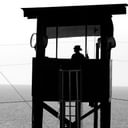
Sixteen years later, the alleged perpetrators of the September 11, 2001 hijackings and attacks on the Pentagon and World Trade Center, and the downing of Flight 93, have yet to be tried, and issues relating to the use of evidence obtained by torture, the appropriateness and legality of trials by military commission, and where and how they should be tried raise questions as to whether and when a trial may take place. The five men charged in the attack — alleged mastermind Khalid Sheikh Mohammed and alleged co-conspirators Walid bin Attash, Ramzi bin al-Shibh, Ammar al-Baluchi and Mustafa al-Hawsawi—remain detained in Guantánamo Bay, Cuba, facing 2,973 individual counts of murder. Mohammed was captured in Pakistan in 2003 and turned over to the CIA, charged in 2008, and arraigned in 2012. A 2014 report on CIA interrogations by the U.S. Senate Select Committee on Intelligence — known as “The Torture Report” — documents that Mohammed was subjected to numerous acts of torture, including sleep deprivation, “rectal rehydration,” and being waterboarded 183 times in a single month. As with the case of accused USS Cole bombing suspect, Abd al Rahim al Nashiri, the five defendants have accused the government of continuing misconduct and are challenging the legality of the military commissions that have been established to conduct the terrorism trials, the use of evidence obtained by means of torture, and the destruction of evidence they say is vital to defend the case. Military prosecutors have requested a January 2019 trial date, with fast-tracked briefing deadlines that trial judge Army Col. James L. Pohl has already said he will not adopt. But given the numerous pre-trial issues that need to be resolved, defense lawyers say it could be years before the men face trial. These issues include whether the judge and his staff have a high enough level of security clearance to review top secret documents that are critical to defense motions challenging the reliability of confessions made to FBI agents by defendant Ammar al-Baluchi in post-torture interrogations conducted shortly after al-Baluchi arrived at Guantánamo in 2006. Another issue is whether the defendants should be tried in civilian court or by a military commission. In 2011, then-Attorney General Eric Holder warned that Mohammed’s case could take years to bring to trial unless it were transferred to a civilian court. Michael Bachrach, an attorney who represented Ahmed Ghailani, the Tanzanian al-Qaida terrorist convicted in New York in 2010 for his part in the 1998 bombings of US embassies in Kenya and Tanzania, says that Ghailani’s case proved that a fair civilian trial is possible. “We had classified and unclassified material involved, torture involved, and the jury saw what was necessary for them to see,” Bachrach said. “Can Mohammed get a fair trial by military commission? I’m not as confident about that.” Mohammed’s lawyer, David Nevin, told The Guardian that, once it gets started, the trial itself could last for more than a year, followed by appeals that could take nearly two decades. “There’s every possibility that [Mohammed] will die in prison before this process is completed,” he said. With the reduced life expectancy of “someone who’s been tortured,” he said, “you have to ask, why exactly are we doing this, or doing it in this way? We are spending millions and millions of [public] dollars every week for something that could be pointless.”
(J. Walters, “Will accused 9/11 architect Khalid Sheikh Mohammed ever come to trial?,” The Guardian, September 11, 2017; J. Reinl, “Justice remains elusive on 9/11 anniversary,” Al Jazeera, September 11, 2017; C. Rosenberg, “9/11 prosecutors propose 2019 trial date, but judge says not so fast,” Miami Herald, August 24, 2017; C. Rosenberg, “Sept. 11 trial stumbles on documents so secret the judge can’t see them. For now.,” Miami Herald, August 23, 2017.) See U.S. Military.



